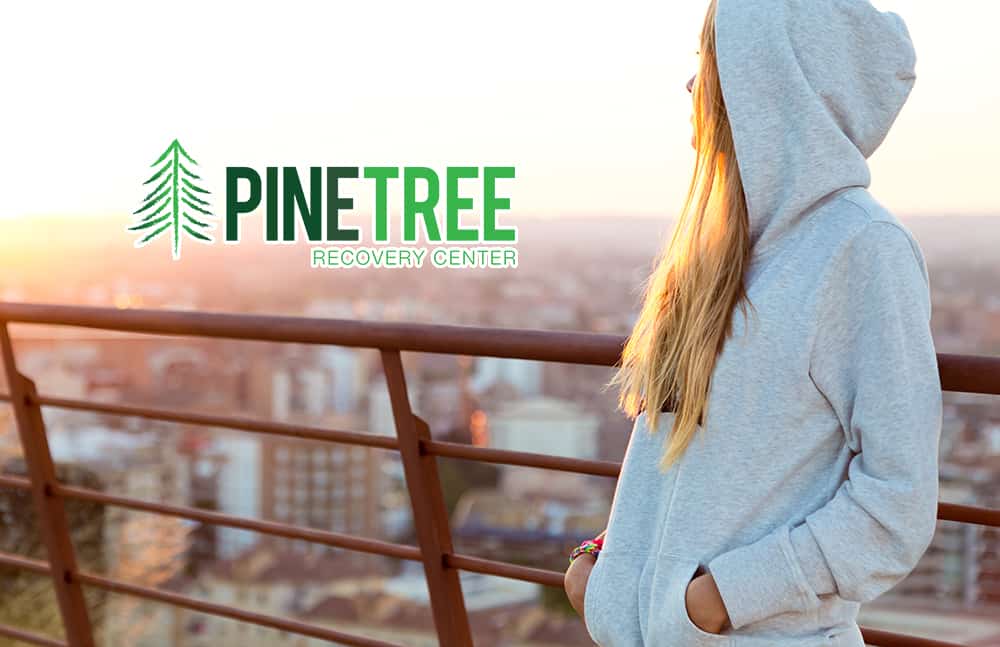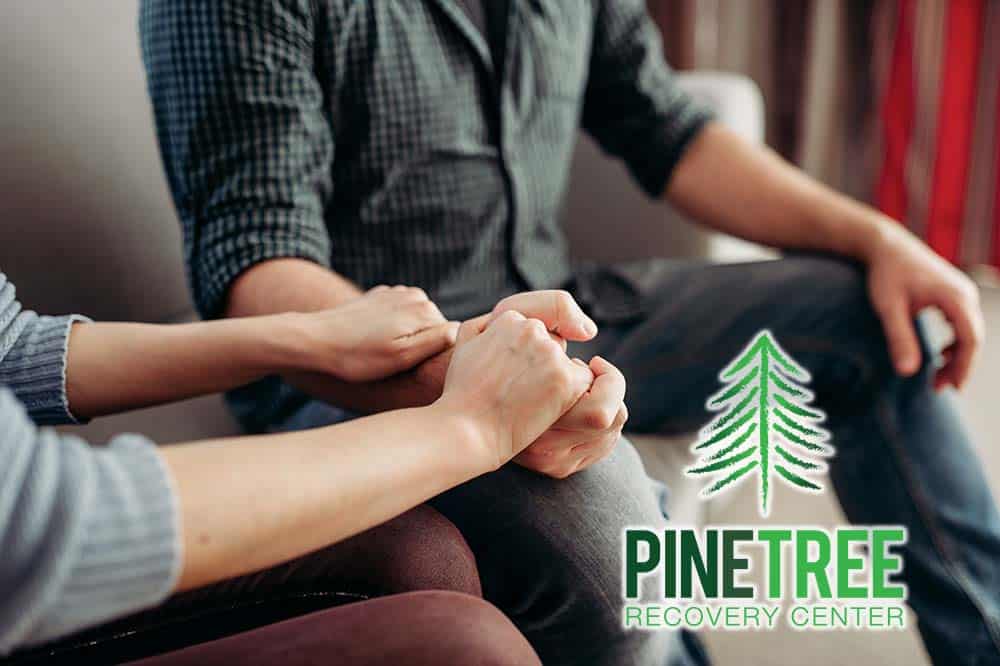Women and Addiction
Watching someone you love suffer from a substance abuse disorder is undeniably one of the most painful experiences you will ever undergo. You vacillate between a range of uncomfortable emotions – one minute you feel helpless and afraid, the next you feel angry at the world and everyone in it. If you believe that your wife has been abusing chemical substances there is a good chance you are feeling defeated and wondering what you can do to help. The good news is that you are not powerless in the situation – you can help, and at Pine Tree Recovery Center we are available to help guide you through the process. The first step is always educating yourself on the ins and out of substance abuse and dependence. Addiction is a chronic and relapsing brain disease, one characterized by compulsive drug use despite an accumulation of personal consequences.
Women tend to have a different experience with drug abuse than men do. According to the National Institute on Drug Abuse, women who use chemical substances face a range of gender-specific issues like hormonal changes, menstrual cycles, menopause, pregnancy and breastfeeding. They also tend to turn to chemical substances for a different set of reasons, including the self-medication of underlying mental health conditions, attempts to treat chronic pain, coping with exhaustion and issues relating to body image and weight control. Women become substance dependent more quickly than men, and they experience more intense drug cravings and are more susceptible to relapse. If your wife has been struggling with drug abuse she needs ample support and encouragement in order to begin the healing process. While you might feel helpless at the moment, you are capable of pointing her in the right direction – and at Pine Tree Recovery Center, we are available to support you every single step of the way.
Addiction – A Family Disease
Addiction is unique in the sense that it has the potential to tear families apart and destroy numerous lives all in a matter of weeks. The approach to recovery is also different than it is for other chronic diseases. In order to thoroughly heal and stay sober long-term, your wife needs to undergo a multi-phased program of clinical care, beginning with medically monitored detox and continuing on with inpatient treatment and aftercare. If you are still on the fence about whether or not your wife is an addict, there are several diagnostic criteria to keep an eye out for. These criteria are outlined in the Diagnostic and Statistical Manual of Mental Disorders, Fifth Edition (DSM-V) and are widely recognized by medical professionals everywhere.
The criteria for active addiction are as follows:
- Social and interpersonal problems related to substance abuse.
- Hazardous use – use that can result in an increase in risk-taking activities.
- Using chemical substances for longer than intended and in greater amounts than intended.
- Continuously attempting to cut back or quit but being unable to do so.
- Spending a great deal of time obtaining drugs, using drugs and recovering from their physical and psychological effects.
- Neglecting activities that were previously enjoyed in lieu of substance abuse.
- Experiencing intense psychological drug cravings.
- Developing a physical tolerance over time.
- Experiencing symptoms associated with drug withdrawal when use is abruptly stopped for any reason.
If your wife has been exhibiting some or all of the above-listed signs and symptoms, there is a very good chance that she has been struggling with a diagnosable substance abuse disorder. However, if you are still unsure whether or not your wife is an addict, there are several additional warning signs to look for. For more comprehensive information on the symptoms associated with substance abuse contact us today.

Our Drug & Alcohol Detox Services Include
Other Signs That Your Wife is an Addict
Some other behavioral warning signs of substance abuse and dependence include:
- Being dishonest, secretive or evasive – Your wife might be dishonest about where she has been, who she has been spending time with and what she has been doing in her free time. She might require more privacy than she did previously.
- Experiencing severe and unpredictable mood swings – If your wife has been struggling with drug abuse she might appear to be happy and conversational one minute, then irritable and agitated the very next minute.
- Sleeping at strange hours or appearing tired and fatigued throughout the day – Substance abuse generally leads to severely disrupted sleep patterns.
- Changes to appearance or a lack of attention paid to personal hygiene – For example, if your wife used to wear makeup and do her hair, she might be entirely neglecting her standard daily routine – and rarely even showering or changing her clothes.
- Forgetting things and experiencing what might seem like unexplainable memory loss – Say you and your wife had reservations for dinner, and she completely missed the dinner date insisting she had forgotten about the reservations entirely.
Ready To Begin Your Drug & Alcohol Detox?
We Offer A Safe & Effective Program
Don’t let Drug & Alcohol addiction control your life.
Call us today and let’s get you started on the path to a better you.
Helping an Addicted Loved One
Helping an addicted loved one is certainly no small task, and it requires a lot of patience and empathy. If your wife has been struggling with addiction you have likely attempted to have a face-to-face conversation in the past. If you have not yet tried to communicate the way you are feeling, we recommend attempting a calm and rational conversation. Of course, if the addiction has progressed and your wife is almost always intoxicated, having a rational conversation might not be a possibility. Keep in mind the fact that addiction is a disease of denial and defensiveness, and you are liable to run into the following roadblocks:
- Your wife may be afraid to admit that she has a problem with drug abuse.
- She might insist that she can stop whenever she wants to, and that her actions are not hurting anyone other than herself.
- She might be afraid of committing to a long-term program of clinical care because of her personal obligations as a wife, mother or homemaker.
- She might be using drug abuse as a way to cope with an underlying emotional problem that she does not feel comfortable talking about.
- She might fear the consequences of admitting that she has a substance abuse disorder, such as her place of employment or friends finding out.
Approach the conversation in a compassionate way, without placing any blame or pointing fingers. Express how her behavior has made you feel and suggest treatment if you feel comfortable doing so. If you are in need of more guidance or support, reach out to Pine Tree Recovery Center today.
Begin Healing Now!
Have A Call With One Of Our Treatment Advisors
Don’t Suffer Any Longer
Pine Tree Recovery Center
At Pine Tree Recovery Center we are available to assist you every single step of the way. We understand how painful it can be to watch a loved one struggle with addiction, and how overwhelming it can be to try and get your loved one the help she needs. In fact, many of our staff members have helped their own spouses or other loved ones through the recovery process, which allows them a unique, compassionate perspective and invaluable firsthand insight. We also believe that addiction is a family disease, and that long-term sobriety can only be maintained when all members of the family heal simultaneously. We offer intensive family therapy sessions, family-oriented workshops and a range of other services and resources. We also work closely with several licensed interventionists, all who boast extremely high success rates. If the substance abuse disorder has become severe and you need to take immediate action, carrying out a professionally staged intervention is always a good idea. To learn more about how you can help your wife overcome addiction or to be put into touch with one of our licensed interventionists contact us today, we are available to help you 24/7.

Reviewed for accuracy by:
Randi Bruneau
LCSW, LADC, CCS
Randi is a Licensed Clinical Social Worker and Licensed Alcohol and Drug Counselor and Supervisor who has over 20 years of experience in the field of mental health and addictions. She has worked in both clinical and administrative leadership roles and also has extensive career experience in gender specific trauma treatment, crisis intervention, structural family work and substance use disorder treatment and supervision.






















